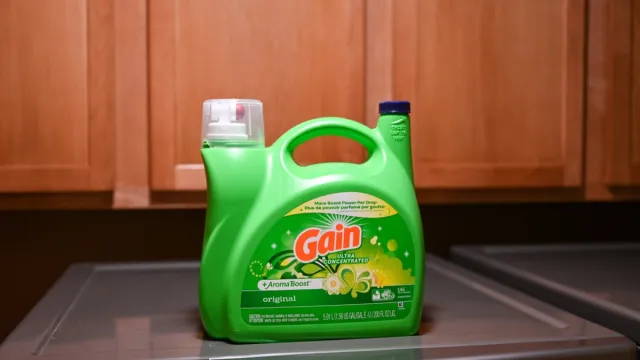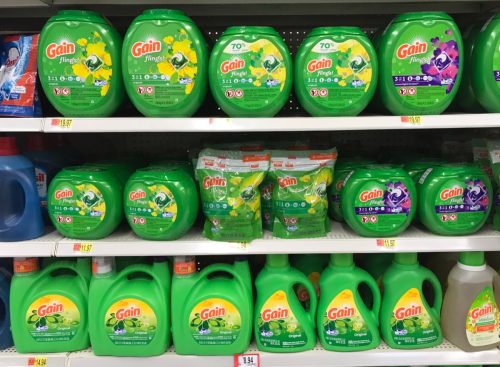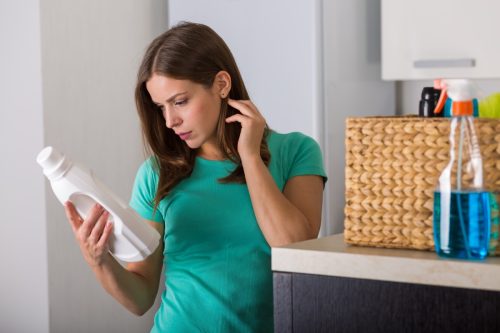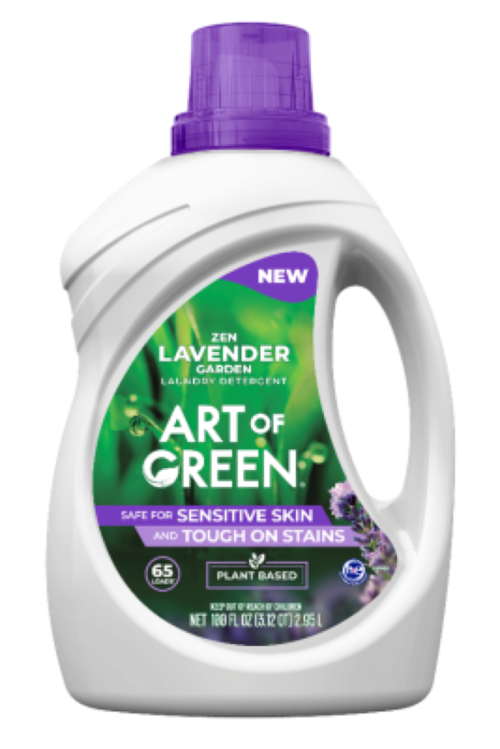Despite the fact that doing laundry can be tedious, there is no denying that freshly washed clothes feel and smell great.
Many people swear by their favorite detergent brand, a timeless classic their family used for generations, or a more modern scent. However, those who regularly use Gain products should be aware of a recently filed lawsuit alleging that it contains a “probable human carcinogen”.
Further information regarding these claims is provided below.

Even though laundry can be a chore, you have to admit, there are few things better than snuggling into fresh sheets or putting on a cozy sweatshirt that’s just come out of the dryer.
You probably have a trusted detergent brand you rely on to get the job done, which may be something your family used growing up or a new scent you enjoy.
But if you regularly turn to Gain products, you’ll want to pay attention, as a new lawsuit alleges that the detergent actually contains a “probable human carcinogen.”

Earlier this year, Darlene Hangen-Hall, a resident of Buffalo, New York, filed a lawsuit against The Procter & Gamble Company in relation to the marketing of their Gain Original Aroma Boost laundry detergent.
According to the class action complaint, she alleges that the product is falsely advertised as being “environmentally-friendly” in an attempt to attract eco-conscious customers—a tactic known as “greenwashing.”
The packaging for this product allegedly includes natural elements such as stylized flowers, leaves, butterflies and an intensive use of the color green.
Research indicates these visuals evoke positive emotional responses from consumers who may not be knowledgeable about greenwashing methods. Furthermore, Hangen-Hall’s lawsuit claims that Gain laundry detergent may also pose health risks, claiming the detergent contains a harmful chemical.

According to testing performed by Bureau Veritas, a certification company, 1,4-Dioxane (dioxane) was discovered in the detergent. This toxic substance is classified as a “probable human carcinogen” by both the National Institutes of Health (NIH) and the U.S. Environmental Protection Agency (EPA), and accumulates in the body over time through inhalation or absorption through contact with skin or contaminated water sources.
Interestingly, despite its known health risks, dioxane is not mentioned anywhere on Gain’s container labels.
Hangen-Hall used Gain detergent in the past, according to the lawsuit, but she wouldn’t have purchased the products if she had been aware of the high dioxane levels.
Per the lawsuit, the toxin can only be detected by laboratory testing.
Hangen-Hall argues that Procter & Gamble “had a duty to disclose and/or provide non-deceptive descriptions and marketing of the Product.” By failing to do so, she believes that the company is guilty of negligent misrepresentation, fraud, and unjust enrichment (meaning they profited from a product that wasn’t properly represented).
She further claims Procter & Gamble is in violation of the New York General Business Law, the State Consumer Fraud Acts, and the Magnuson Moss Warranty Act, which outlines standards for written warranties.
Hangen-Hall is seeking damages for herself and other class members and asking for a jury trial.

While Gain products are still on the shelves, 14,550 bottles of Art of Green laundry detergent were pulled late last year.
On Dec. 12, 2022, the U.S. Consumer Product Safety Commission (CPSC) announced that AlEn USA LLC recalled bottles of the brand’s Free and Clear and Zen Lavender Garden detergent due to potential bacterial contamination.
This included Pseudomonas aeruginosa, a microorganism commonly found in soil and water.
The bacteria aren’t dangerous to those with otherwise healthy immune systems, but immunocompromised consumers or those with external medical devices can “face a risk of serious infection that may require medical treatment” if exposed, the CPSC said.
Consumers were instructed to stop using the detergent and contact AlEn USA for a full refund.
After taking a photo of the universal product code (UPC) and date code, the CPSC recommended throwing the detergent away without emptying it.
- Source: https://www.classaction.org/media/hangen-hall-v-the-procter-and-gamble-company.pdf
- Source: https://www.epa.gov/sites/default/files/2016-09/documents/1-4-dioxane.pdf
- Source: https://www.cpsc.gov/Recalls/2023/AlEn-USA-Recalls-Art-of-Green-Laundry-Detergent-Products-Due-to-Risk-of-Exposure-to-Bacteria


